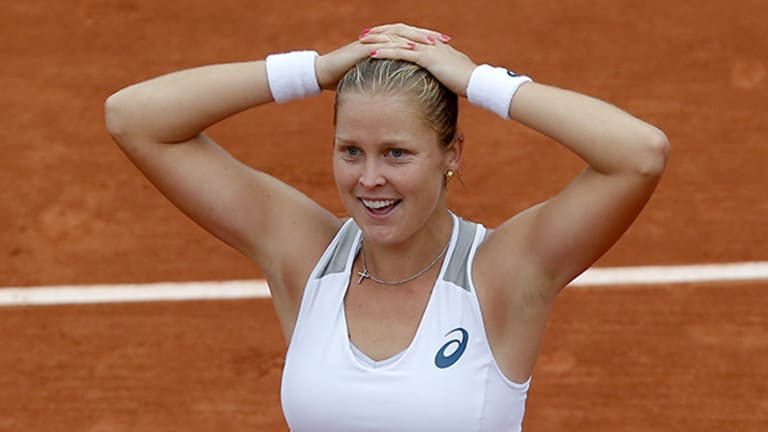Over the years, French tennis fans have been called a lot of things by players visiting from the United States; it’s better, perhaps, not to detail them here. On Sunday, though, South Carolina native Shelby Rogers told the spectators in Court Suzanne-Lenglen something they probably never thought they would hear about themselves from an American.
“You guys are awesome!” Rogers called out to the hardy fans who had come out in the overcast Paris weather to watch her 6-3, 6-4 fourth-round win over Irina Camelia-Begu. If they had wondered at the start who this 23-year-old, 108th-ranked player was, and what she was still doing in their tournament on its second Sunday, they knew now.
In beating Begu, the 25th seed, Rogers did just what she had done in upsetting 10th-seeded Petra Kvitova and 17th-seeded Karolina Pliskova last week: She used her easy power and smoothly lethal two-handed backhand to control the proceedings from the baseline, all while looking, as one fan put it on Twitter, “like she’s just trying to get some cardio before she goes out with her friends later.”
But if Rogers appeared relaxed and in control while the match was going on, once it was over it was obvious how much the moment meant to her. After years of having her career interrupted by knee and back injuries and bouncing around in the triple digits in the rankings, Rogers had reached her first Grand Slam quarterfinal, and she had done it at the least likely Grand Slam.
